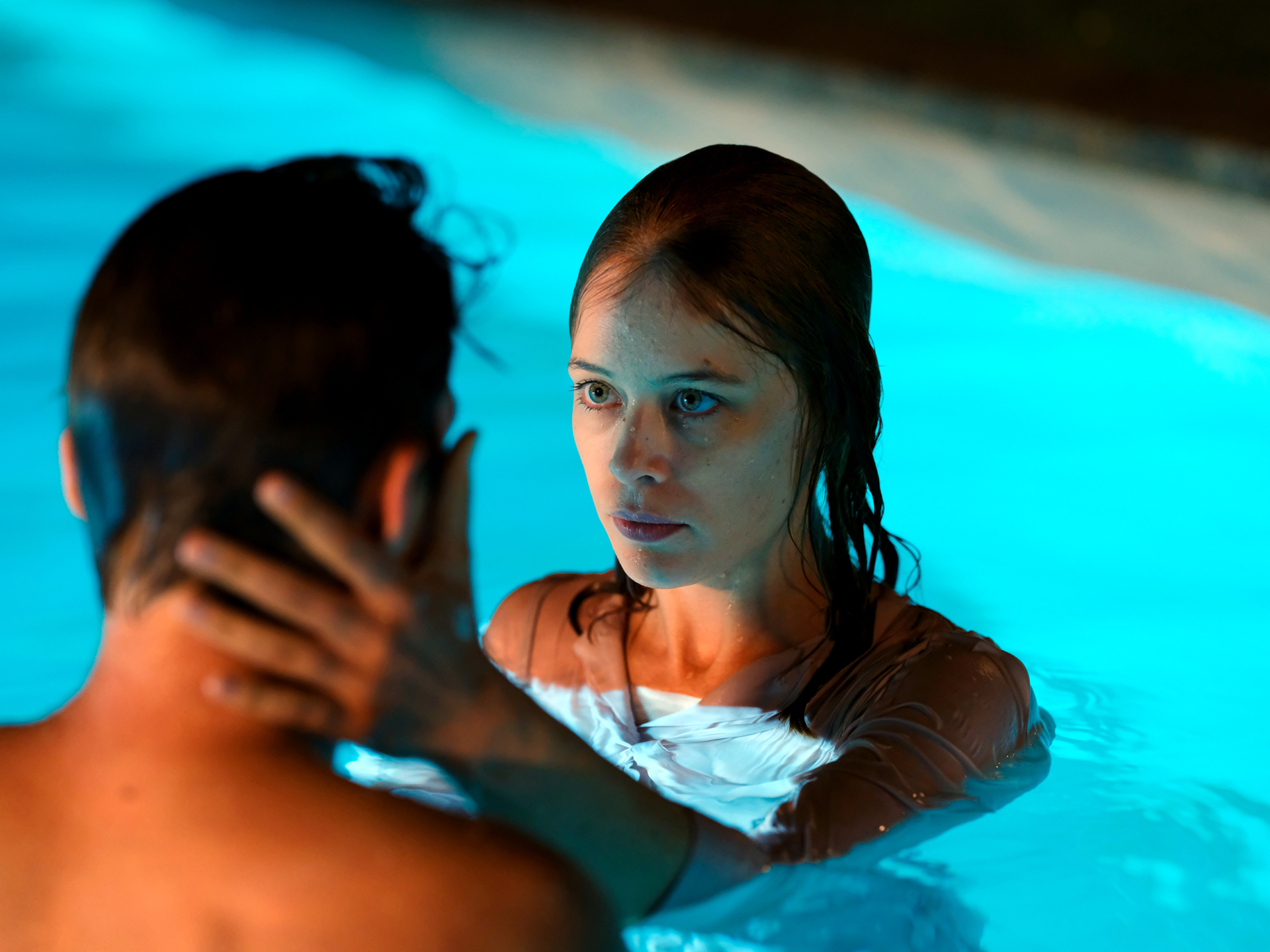An undine is a mythological water spirit, usually female, that doesn’t have a soul unless it marries a human on land. If the husband is unfaithful, however, the undine has to kill both him and herself. Undine, the latest film from German auteur Christian Petzold, is a rendition of that myth. Sort of. Petzold isn’t one to go with the grain—his film about the refugee crisis, Transit, takes place in a fascist Paris that exists across multiple time periods. Undine continues in that vein of magical realism: grounded in cultural particulars but sprinkled with fairy dust.
After a man named Johannes leaves a woman named Undine for another woman (uh oh Johannes), Undine starts spiraling into depression—until she chances across a new man, Christoph, during a mysterious meet-cute at a café. After she hears an industrial diver figurine in the café’s fish tank calling out her name, she’s approached by Christoph, an actual industrial diver. Christoph tries to ask her out but mostly just bumps into things, inadvertently bringing the fish tank crashing down on them. The two lay there together, soaked, pierced by glass, and with the figurine between them, and that’s the start of their whirlpool romance.
READ ALSO: Ranking Arizona: Top 10 indoor attractions for 2021
Already Petzold’s penchant for symbols is on display. The industrial diver figurine, ever-present bodies of water, a wine stain on the wall—Undine uses little, material things to connect reality to the magic operating behind it, either narratively or just in our heads. Like Transit, the story could pass for utter realism if it weren’t for the details. Undine could merely be the tale of a strange, sometimes inexplicable relationship, but there are symbols, coincidences, and Petzold’s obsession with the architecture of Berlin (Undine works for the city’s Urban Development and Housing department and gives several lectures throughout the film). It’s a story that’s only magic holistically, when the odd particulars are taken into account with the bigger picture. Understated throughout, Undine builds like waves lapping against the shore on a barely windy day: the payoff isn’t the arrival of a bigger wave; it’s the cumulative beauty of the time you spent watching the sea.
Is Undine’s ocean worth gazing upon for 90 minutes? Here and there. Paula Beer and Franz Rogowski, who starred in Petzold’s Transit and return here as Undine and Christoph, are transfixing. Rogowski gets to flex his range, trading the sternness of his turn in Transit for permanent puppy dog eyes (and a whole puppy dog face, really). Beer is resplendent in her restraint. She finds an enticing balance between steely alienness—think Johansson’s performance in Under the Skin—and the human frailties of contemporary drama. Beer and Rogowski’s chemistry would be enticing in any movie, but Petzold intensifies their spotlight by keeping the camera close to them, and by making Bach’s Concerto in D minor (BVW 974)—a piece that melts from foreboding to serene—the theme of their relationship.
Beyond the intrigue generated by unanswered questions, though, Undine and Christoph’s connection is the limit of the film’s draw. Petzold’s metaphors are muddled in the mix. The water-related symbology fits on a surface level, at least, even if it sometimes feels like vague window dressing—but the architectural metaphors seem to belong to a different movie. The ideas in Undine’s lectures are reminiscent of themes in Petzold projects past: how the physical structure of life is built by ideology; the liminality of a living space that’s always changing. But they mesh with Undine’s romance only tangentially—like Petzold couldn’t help but inject the notions he’d been playing with in Transit and Phoenix into his mythology assignment. Trying to wrap them into Undine’s larger narrative feels like an exercise in futility: by the film’s conclusion, the themes are surrendered to the ending the myth promised, and little more.
★★½ (2.5/5)




